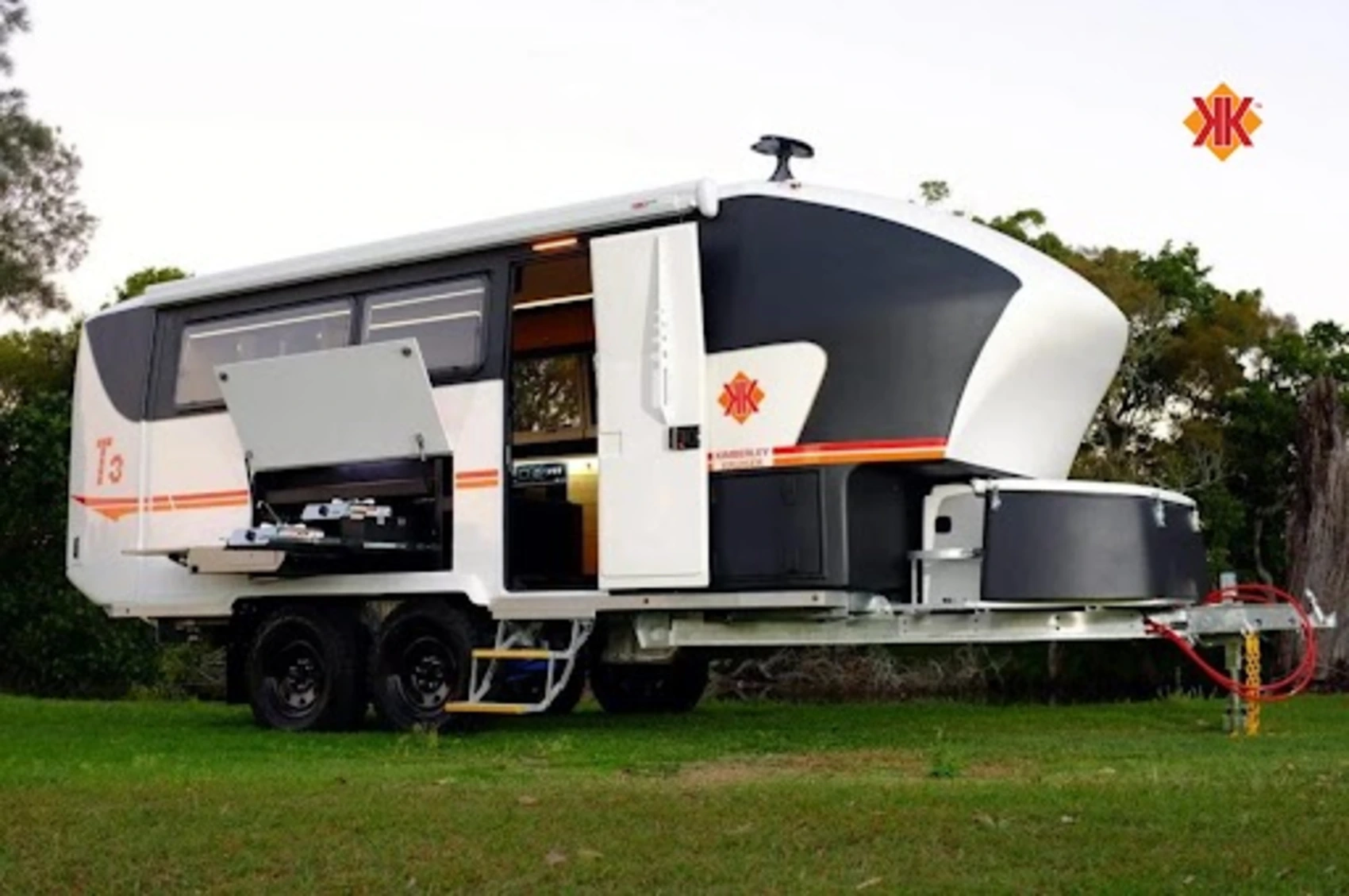Introduction
Off-road caravanning offers the thrill of exploring rugged terrains and remote destinations while enjoying the comforts of home. However, the challenges of off-road travel require careful attention to safety and maintenance to ensure a smooth and enjoyable journey. In this comprehensive guide, we’ll provide you with essential tips for off-road caravan safety and maintenance, helping you prepare for your adventures and keep your caravan in top condition.
Preparing for Your Off-Road Adventure
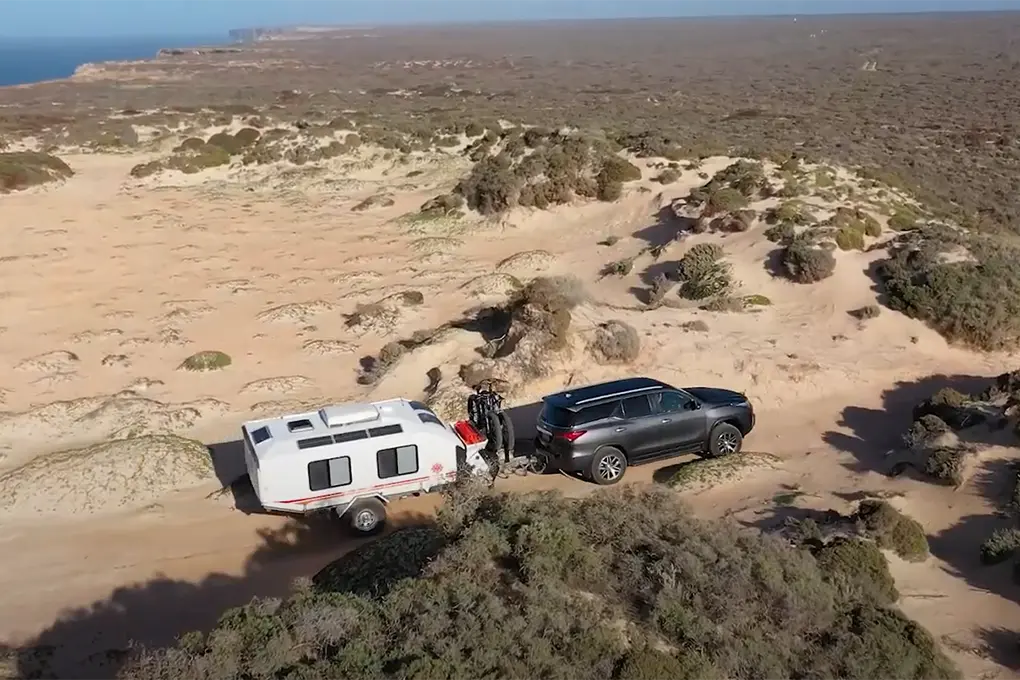
Understand Your Caravan’s Capabilities
Before embarking on an off-road trip, it’s crucial to understand the capabilities and limitations of your caravan. Key factors to consider include:
- Suspension System: Ensure your caravan has a robust suspension system capable of handling rough terrains.
- Ground Clearance: Higher ground clearance is essential for navigating obstacles like rocks and tree roots.
- Weight Distribution: Proper weight distribution improves stability and handling on uneven surfaces.
- Towing Capacity: Verify that your towing vehicle can handle the weight of the fully loaded caravan.
Conduct a Thorough Inspection
A thorough pre-trip inspection can help prevent issues on the road. Key areas to check include:
- Tyres: Inspect tyres for wear and ensure they are properly inflated. Consider carrying a spare tyre and a portable air compressor.
- Brakes: Test the brakes to ensure they are functioning correctly. Off-road conditions can put extra strain on braking systems.
- Lights and Signals: Check all lights and signals to ensure they are operational. Visibility is crucial for safety, especially in remote areas.
- Hitch and Coupling: Inspect the hitch and coupling for wear and secure connections. Ensure the safety chains are in good condition.
Pack Essential Supplies
Packing the right supplies is vital for off-road travel. Consider the following essentials:
- Emergency Kit: Include a first aid kit, fire extinguisher, and emergency signalling devices (e.g., flares, reflective triangles).
- Recovery Gear: Pack items such as a winch, tow straps, and traction boards to help you get unstuck in challenging conditions.
- Tool Kit: Carry a basic tool kit for minor repairs, including wrenches, screwdrivers, pliers, and a tyre repair kit.
- Spare Parts: Consider carrying spare parts for common issues, such as fuses, hoses, and belts.
On-the-Road Safety Tips
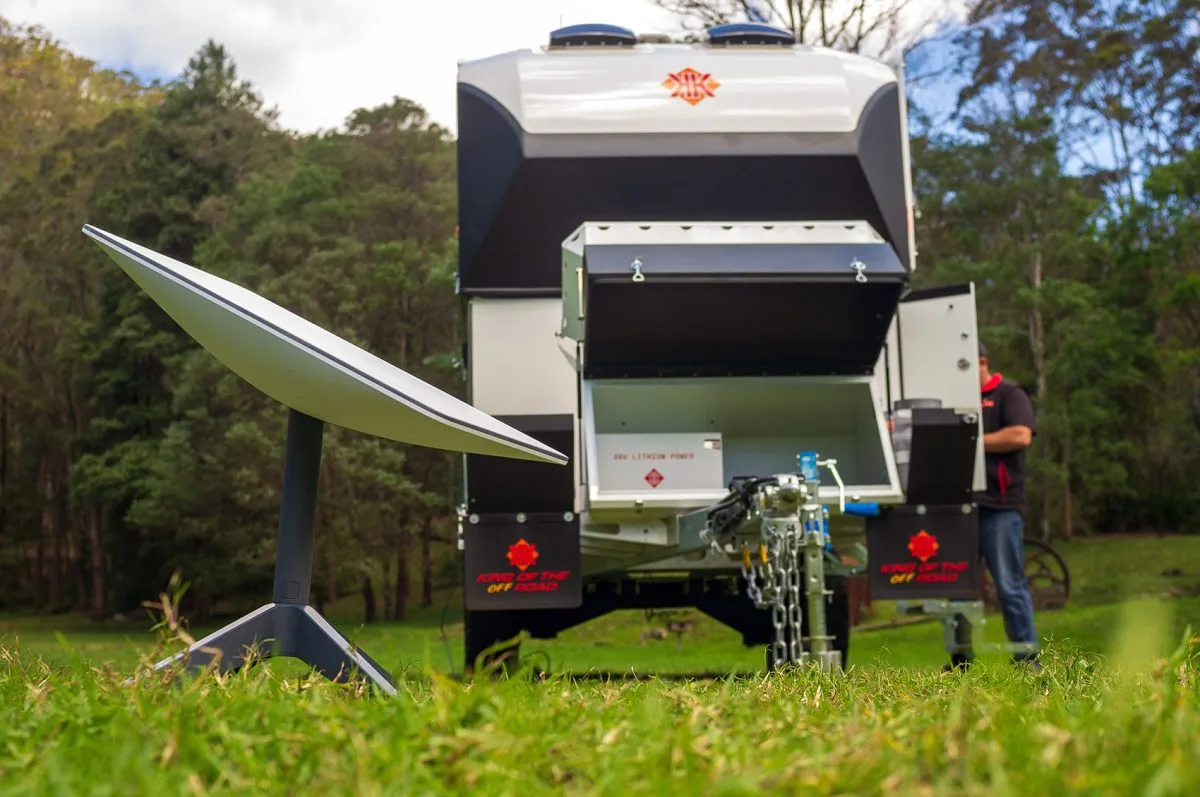
Drive Carefully and Responsibly
Off-road driving requires a different approach than highway driving. Follow these tips for safe off-road travel:
- Adjust Your Speed: Drive at a moderate speed that allows you to react to obstacles and changes in terrain. High speeds can increase the risk of losing control.
- Use Low Gears: Engage low gears to maintain control on steep inclines and declines. This reduces strain on your engine and brakes.
- Maintain Safe Distances: Keep a safe distance from other vehicles to allow for unexpected stops and manoeuvring.
- Be Mindful of Weather Conditions: Weather can change rapidly, affecting road conditions. Be prepared to adjust your plans if necessary.
Navigate Terrain Safely
Different terrains present unique challenges. Here are tips for navigating common off-road terrains:
- Sand: Reduce tyre pressure to increase traction. Maintain a steady speed and avoid sharp turns to prevent getting stuck.
- Mud: Engage 4WD and maintain a steady speed. Avoid sudden acceleration or braking, as this can cause wheel spin and loss of traction.
- Rocks: Use a spotter if necessary to navigate rocky terrain. Approach obstacles slowly and at an angle to reduce the risk of damage.
- Water Crossings: Assess the depth and current before crossing. Enter the water slowly and maintain a steady speed to create a bow wave, which helps keep water away from the engine.
Stay Connected and Informed
Communication is vital for safety during off-road travel. Consider the following:
- GPS and Navigation: Use GPS devices and offline maps to navigate remote areas. Plan your route and be aware of potential hazards.
- Emergency Contacts: Share your travel plans with a trusted contact and establish check-in times. Consider carrying a satellite phone for areas with no mobile coverage.
- Weather Updates: Monitor weather updates to stay informed about changing conditions that could impact your journey.
Caravan Maintenance Tips
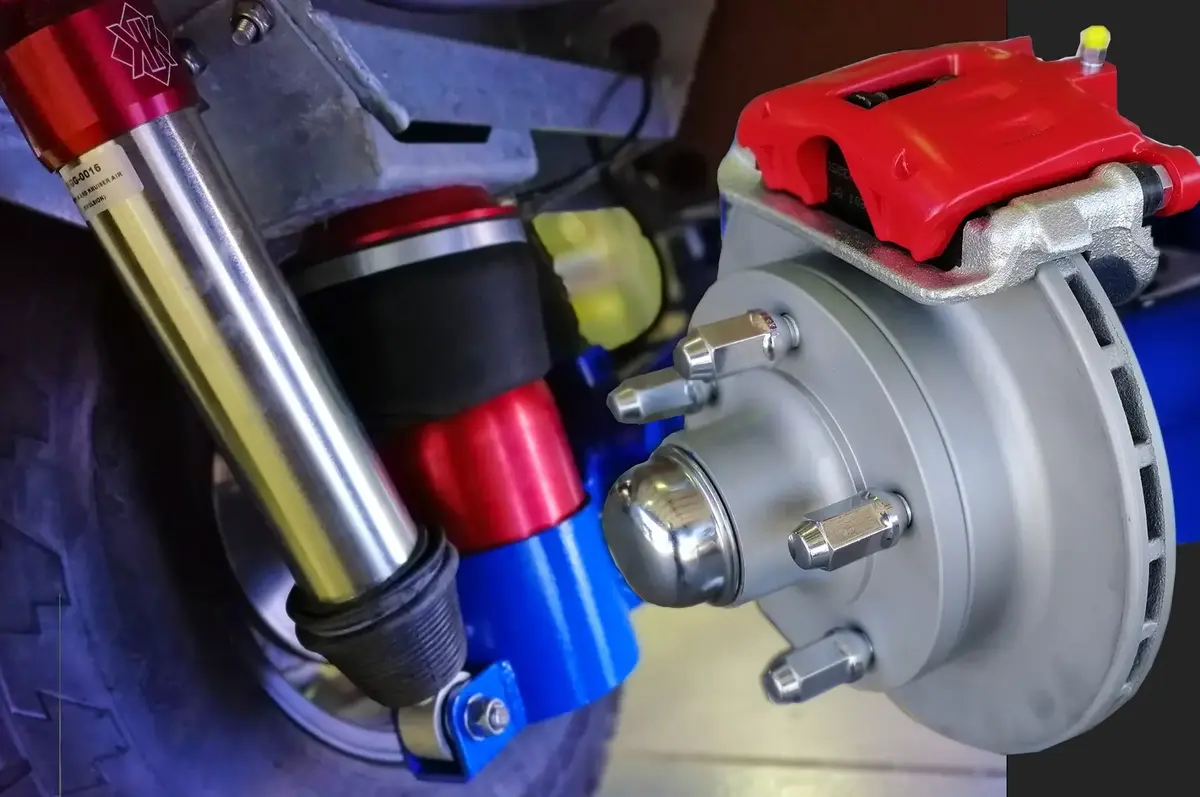
Regular Inspections and Servicing
Regular maintenance is key to keeping your off-road caravan in top condition. Follow these guidelines:
- Tire Maintenance: Check tire pressure and tread regularly. Rotate tyres to ensure even wear and replace them when necessary.
- Brake Inspection: Inspect and service the braking system regularly, including brake pads, discs, and brake fluid levels.
- Suspension and Underbody: Check the suspension system for wear and tear. Inspect the underbody for damage and clean it regularly to remove dirt and debris.
- Electrical System: Test all electrical components, including lights, batteries, and connections. Ensure the solar panels (if equipped) are clean and functioning properly.
Cleaning and Protecting Your Caravan
Keeping your caravan clean and well-protected extends its lifespan and maintains its appearance. Consider the following:
- Exterior Cleaning: Wash the exterior regularly to remove dirt, mud, and salt. Apply a protective wax to prevent damage from UV rays and weather conditions.
- Interior Cleaning: Clean the interior thoroughly after each trip. Pay special attention to the kitchen and bathroom areas to prevent mould and mildew.
- Seal and Protect: Inspect seals and seams for cracks or leaks. Apply sealant as needed to prevent water ingress and protect against the elements.
Storage and Off-Season Maintenance
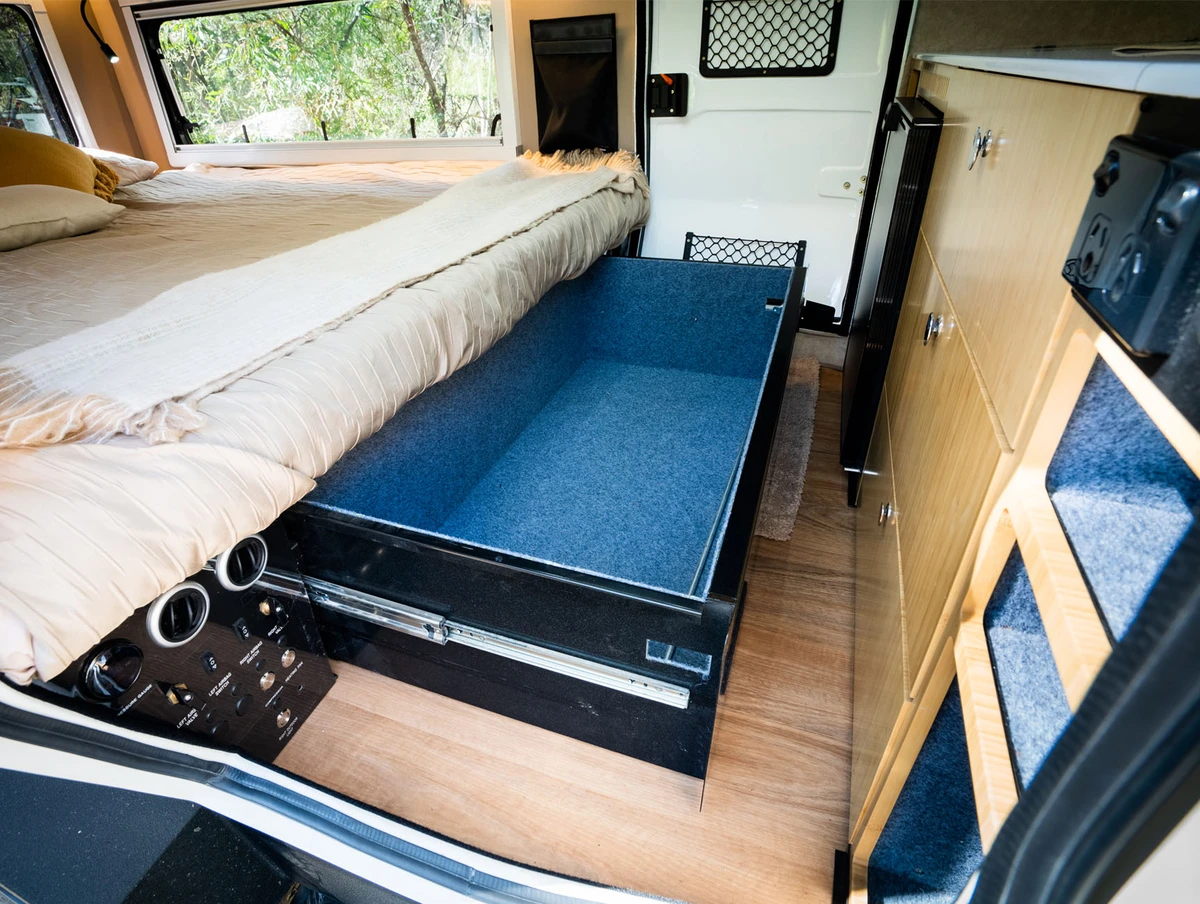
Proper storage during the off-season is crucial for maintaining your caravan’s condition. Follow these tips:
- Store in a Covered Area: If possible, store your caravan in a covered area to protect it from the elements. Use a high-quality cover if indoor storage is not available.
- Disconnect Batteries: Disconnect and remove batteries to prevent discharge and prolong their lifespan. Store them in a cool, dry place.
- Ventilation: Ensure proper ventilation to prevent moisture buildup. Use moisture absorbers and open vents slightly to allow airflow.
- Regular Checks: Conduct regular checks during the off-season to identify and address any issues promptly.
Safety Enhancements for Off-Road Caravans
Upgrading Suspension and Tires
Enhancing your caravan’s suspension and tyres can significantly improve off-road performance and safety. Consider the following upgrades:
- Heavy-Duty Suspension: Upgrade to a heavy-duty suspension system designed for off-road use. This can improve handling and reduce wear and tear on your caravan.
- All-Terrain Tyres: Invest in high-quality all-terrain tyres with reinforced sidewalls for better traction and durability. Ensure the tyres are rated for the load of your caravan.
Adding Recovery and Safety Gear
Equipping your caravan with additional recovery and safety gear can enhance your off-road experience. Consider the following:
- Winch and Recovery Points: Install a winch and reinforced recovery points on your caravan. This allows you to recover your vehicle from challenging situations more easily.
- Snorkel: A snorkel can help protect your engine during water crossings by raising the air intake. This prevents water from entering the engine and causing damage.
- Skid Plates: Install skid plates to protect the underbody of your caravan from rocks and debris. This can prevent damage to critical components like the fuel tank and differential.
Enhancing Communication and Navigation
Reliable communication and navigation tools are essential for off-road safety. Consider these enhancements:
- Two-Way Radios: Equip your caravan with two-way radios for reliable communication with your travel companions, especially in areas with no mobile coverage.
- GPS Tracking: Install a GPS tracking system that allows others to monitor your location. This can be invaluable in case of an emergency.
- Navigation Apps: Use navigation apps specifically designed for off-road travel. These apps can provide detailed maps, route planning, and hazard alerts.
Staying Safe in Remote Areas
Wildlife and Environmental Hazards
Off-road adventures often take you into remote areas where wildlife and environmental hazards are more common. Follow these safety tips:
- Wildlife Awareness: Be aware of local wildlife and follow safety guidelines. Avoid approaching animals and be cautious when driving at dawn or dusk, when animals are more active.
- Fire Safety: Follow fire safety guidelines, especially in dry and fire-prone areas. Keep a fire extinguisher readily accessible and know how to use it.
- Weather Preparedness: Monitor weather forecasts and be prepared for sudden changes. Carry extra supplies in case you get stranded due to extreme weather conditions.
Health and First Aid
Ensuring your health and safety in remote areas requires careful preparation. Consider the following:
- First Aid Training: Take a first aid course to learn how to handle medical emergencies. This can be invaluable when professional medical help is far away.
- Health Supplies: Carry a well-stocked first aid kit, including medications, bandages, antiseptics, and any personal medications you require.
- Hydration and Nutrition: Stay hydrated and carry sufficient food supplies. Dehydration and poor nutrition can impair your ability to handle challenging conditions.
Respecting the Environment
Off-road travel often takes you to pristine natural areas. Follow these guidelines to minimise your impact on the environment:
- Leave No Trace: Follow the principles of Leave No Trace to protect natural areas. Pack out all trash and avoid disturbing wildlife.
- Stay on Designated Tracks: Stick to designated tracks to prevent damage to sensitive ecosystems. Avoid creating new tracks or driving through fragile areas.
- Respect Cultural Sites: Many off-road destinations are rich in cultural heritage. Respect local customs and follow guidelines when visiting cultural sites.
Conclusion
Off-road caravanning offers the freedom to explore remote and beautiful areas while enjoying the comforts of home. However, the challenges of off-road travel require careful attention to safety and maintenance. By understanding your caravan’s capabilities, conducting thorough inspections, packing essential supplies, and following safe driving practices, you can ensure a smooth and enjoyable journey.
Regular maintenance and upgrades can enhance your caravan’s performance and safety while staying informed and prepared for remote travel can help you navigate challenges and emergencies. Finally, respecting the environment and local customs ensures that these beautiful areas remain pristine for future generations of adventurers.
By following these tips, you’ll be well-prepared for your off-road caravanning adventures. Embrace the thrill of the open road, the beauty of remote landscapes, and the joy of exploring new destinations with confidence and peace of mind. Safe travels!

